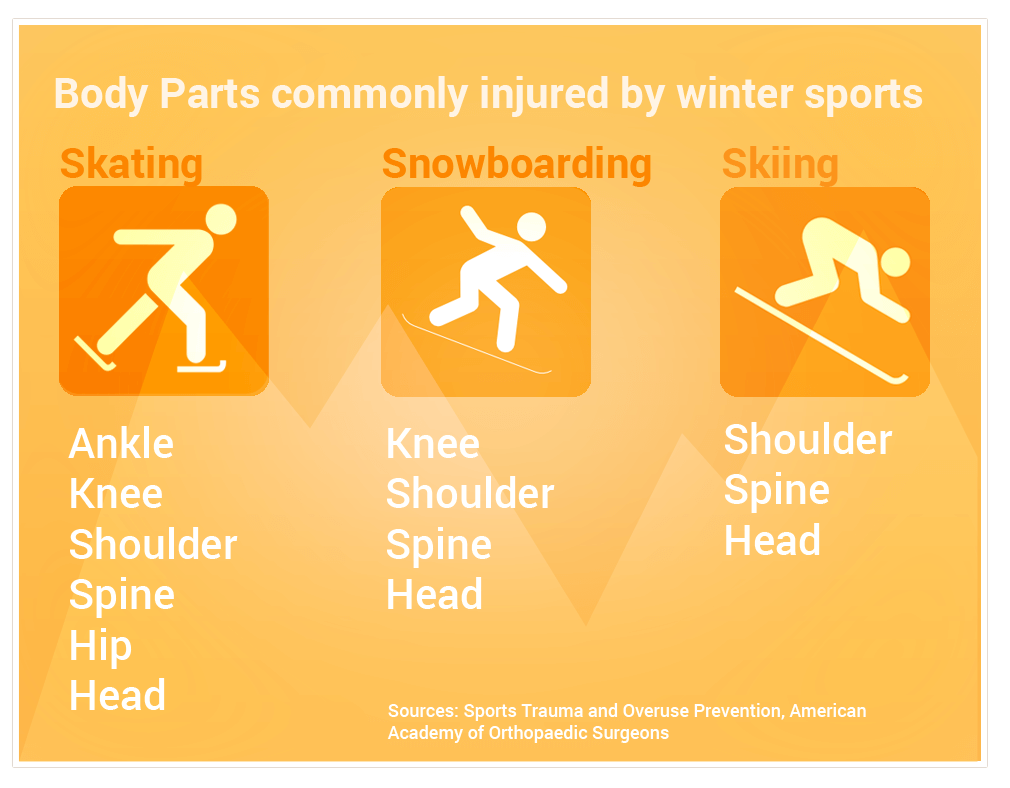Winter's here. That means athletes-and wannabe athletes-are turning their focus from sports in the sun to sports in the snow. Swimming gives way to ice skating, and running is replaced with skiing.
But if you've had joint replacement surgery, the transition may not be as easy as replacing one sport with another.
Here's what you should know about winter sports after joint replacement.
3 factors play a role in your ability to play sports after joint replacement:
- Your age
As you get older-usually starting around menopause for women-your body naturally loses muscle and bone mass, explains the National Institutes of Health (NIH). This can decrease your speed and increase your likelihood of injury, including broken bones.
Your recovery time may also be slower than it would be if you were younger-meaning you might not bounce back as easily or quickly as you used to from an injury.
- How active you were before the surgery
More than half of all joint replacement patients - 61.4 percent - were able to return to their pre-op sports within three years of undergoing surgery, according to a July 2008 study in The Journal of Bone and Joint Surgery.
But the opposite is usually not true. That is, people who weren't very active before joint replacement surgery are not likely to become more active afterward. That's why it's important to have realistic expectations about exercise before, during and after recovery from joint replacement surgery. If you're a first-timer on the slopes or at the skating rink, talk to your doctor about whether these sports are right for you.
- Which joint was replaced
The joint you had replaced can determine which winter sports are OK for you-and which ones are not. For instance, playing hockey after a knee replacement may not be the best idea because knee injuries are already common with that sport. Again, talk to your doctor about the activities you're interested in.
Skating, skiing, and snowboarding
Doctors consider three of the most common winter sports-ice skating, skiing, and snowboarding-high-impact sports. They involve intense physical activity and come with a higher risk of wear and tear-and injury than low-impact activities like walking or swimming.

So, in general, ice skating, skiing, and snowboarding are not recommended for joint replacement patients.
In fact, the NIH specifically mentions skiing as a sport that you should not participate in after hip replacement surgery, along with football and soccer. And the American Academy of Orthopaedic Surgeons (AAOS) says the same about both hip and knee replacement.
So which winter sports are okay after joint replacement?
It's important to maintain some level of physical activity after joint replacement, according to a September 2011 article in Sports Health.
That's because, in addition to helping you stay healthy, exercising and playing sports help the bone and the new joint work together better. Exercise decreases the likelihood of the prosthesis loosening-and putting you at risk of injuring yourself or even needing another joint replacement.
Exercise can also help reduce stiffness and increase both flexibility and strength, explains the National Institute of Arthritis and Musculoskeletal and Skin Diseases (NIAMS).
The AAOS recommends low-impact sports for people who have had hip or knee replacement surgery, including golf, bicycling, and tennis.
As for winter sports, you might be best off sticking to going for a walk with some snowshoes or trying your hand at curling.
The most important thing to keep in mind, however, is that you should always talk to your doctor before taking up any sports after joint replacement surgery. The physicians at McLaren are here to help you get back on your feet and find the right exercise for your needs.